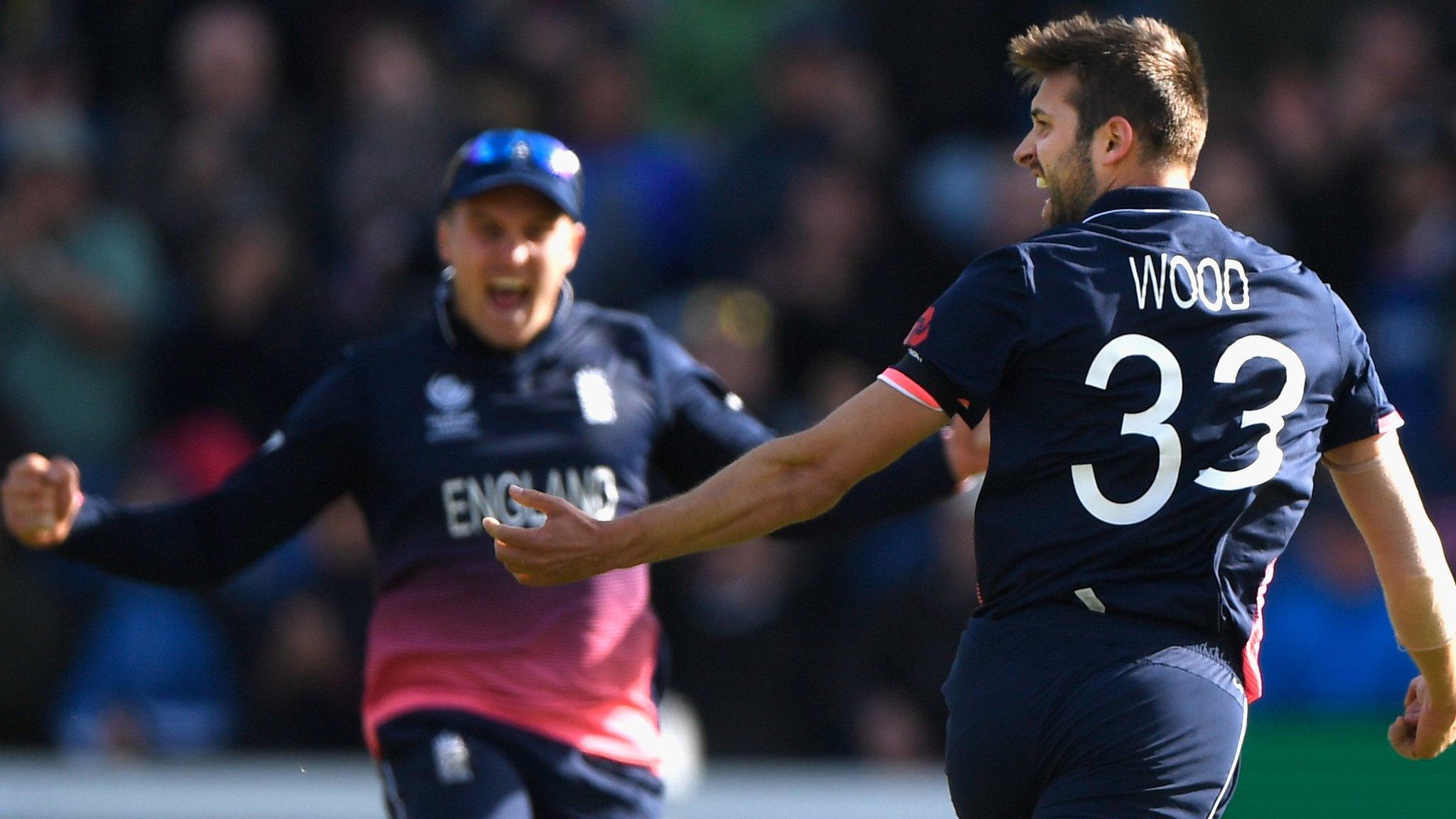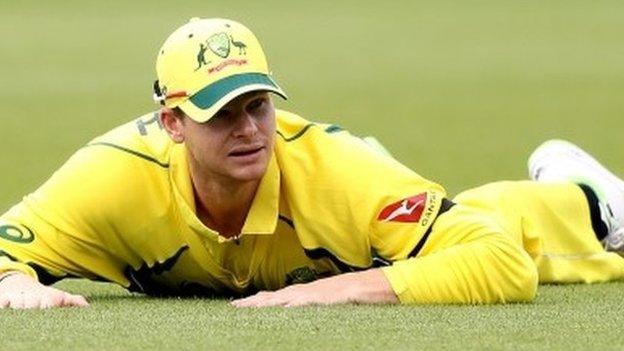Champions Trophy: England and not pitch beat New Zealand - Jonathan Agnew
- Published
There was much disquiet from New Zealand's batsmen about the Cardiff pitch after their 87-run defeat by England, but to me it was clear: this was absolutely a fair track, and England's progression to the semi-finals of the Champions Trophy is entirely deserved.
The ball from Liam Plunkett that jumped up and hit Ross Taylor on the grille of his helmet was an outrageous delivery. You shouldn't see a ball doing that, and to see one do so at almost 90 miles an hour was frightening. Thank goodness Taylor had that protection in place.
But it was just a ball that behaved strangely. The ball did not go through the top of the pitch, nor did it leave a mark. It was unsettling, but New Zealand's batsmen then let it unsettle them too much.
Taylor and his skipper Kane Williamson were putting together a solid partnership in pursuit of England's 310 all out. That ball seemed to get inside their heads.
There was poking at the pitch, there was prodding it. There were words with the umpires, and there was shaking of heads.
When Williamson was then surprised by some extra bounce from Mark Wood and caught behind by Jos Buttler, his reaction indicated that the pitch had been to blame.
I don't believe it had been. Instead, Wood had produced an excellent piece of bowling.
It was the classic cross-seam delivery, something Stuart Broad has always said works well at this ground, something that England reach for quite a lot in one-day cricket.
It's not a new tactic - Andy Roberts used to slip it in for the West Indies off his bouncer, reasoning that if the ball landed on the shiny portion it could skid on and surprise the batsmen with pace, and that if it landed on the seam it could jump up and cause them a different sort of problem.
On pitches like this, it can grip a little. It can stick and bounce, and that's what happened to Williamson.
Again, no mark. Again, no puff of dust.
What surprised me was Williamson's reaction. For the team's captain and leading batsman to gesture as he did sent a bad vibe to the dressing room, as if to excuse further struggles, as if to say, this isn't our fault.
By contrast, England produced a polished team display. It wasn't an overwhelming total that they made, but neither was it shocking.
It was middling, daft though that sounds when they went past 300, and it was hard to call how effective it might be; Cardiff is notoriously hard to read, with its short straight boundaries to draw in the big hitters.
Among England's bowlers, I thought Adil Rashid deserves special praise. Having been left out for England's opening match against Bangladesh at The Oval, he was brought back in conditions less obviously conducive to his skills.
He dealt with them superbly, demonstrating once again that all that hard work he and the England coaches have put in over the past two years has paid off.
He has a wrong 'un that even good batsmen cannot pick, and in the shorter forms of cricket that is a wonderful weapon for a leg-spinner to have in his armoury.
It all means that England supporters can be genuinely optimistic about their team's chances as they move into next week's semi-finals.
They have justified their billing as pre-tournament favourites, and while India have shown that they to deserve to be bracketed in the same league, England will not be intimidated.
No matter who they meet in the semis, or where they play them, they will be confident. They know how to win in Cardiff and they love playing at Edgbaston.
There are still questions about Jason Roy - once again he got out to a premeditated shot, and I just wish he would get himself in before taking such risks - but the rest of the team has form and a plan that works.
Now to knock Australia out of the tournament on Saturday. Qualification or not, that match can never be a meaningless fixture or one they will be happy to lose.
Jonathan Agnew was talking to BBC Sport's Tom Fordyce
- Published6 June 2017

- Published6 June 2017

- Published30 May 2017

- Published6 June 2017
